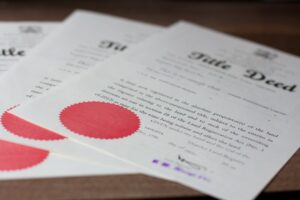Intellectual property (IP) plays a crucial role in fostering innovation and creativity. In Thailand, the protection of intellectual property rights (IPR) is governed by a comprehensive legal framework designed to align with international standards. This framework encompasses various forms of IP, including copyrights, trademarks, patents, and trade secrets. Understanding the specifics of IP law in Thailand is essential for businesses, creators, and investors aiming to protect their intellectual assets in the Thai market.
Intellectual Property Rights in Thailand
- Copyrights
- Scope and Protection: Copyright in Thailand protects literary, artistic, and scientific works, including books, music, films, software, and architectural designs. Protection is granted automatically upon the creation of the work, and registration is not mandatory, although it provides additional legal advantages.
- Duration: The duration of copyright protection varies. For most works, it extends to the lifetime of the author plus 50 years. For works created by juristic persons, the protection lasts for 50 years from the date of creation or first publication.
- Moral Rights: Authors have moral rights to their works, including the right to be acknowledged as the creator and to object to any distortion or mutilation of the work that could harm their reputation.
- Trademarks
- Definition and Registration: A trademark is a sign capable of distinguishing the goods or services of one enterprise from those of others. In Thailand, trademarks must be registered to be protected. The registration process involves a formal application to the Department of Intellectual Property (DIP) and is subject to examination for distinctiveness and non-confusion with existing marks.
- Duration and Renewal: Registered trademarks are protected for 10 years from the filing date and can be renewed indefinitely for consecutive 10-year periods.
- Enforcement: Trademark owners have the exclusive right to use their marks and can take legal action against unauthorized use or infringement.
- Patents
- Types of Patents: Thailand recognizes three types of patents: invention patents, petty patents (utility models), and design patents. Invention patents protect new, inventive, and industrially applicable inventions. Petty patents are granted for inventions with a lower inventive step. Design patents protect the aesthetic aspects of a product.
- Registration Process: The patent application must be filed with the DIP, and it undergoes a substantive examination to ensure it meets the requirements of novelty, inventiveness, and industrial applicability.
- Duration: Invention patents are protected for 20 years, petty patents for 10 years, and design patents for 10 years from the filing date.
- Compulsory Licensing: In certain circumstances, the Thai government can grant compulsory licenses to third parties to use a patented invention without the consent of the patent owner, typically for public health or national emergency reasons.
- Trade Secrets
- Definition and Protection: Trade secrets refer to confidential business information that provides a competitive edge, such as formulas, processes, or customer lists. Protection is granted without registration, provided that the information is kept confidential and has commercial value.
- Legal Framework: The Trade Secrets Act governs the protection of trade secrets in Thailand. It provides remedies for unauthorized use or disclosure, including injunctions and damages.
- Geographical Indications
- Definition and Importance: Geographical indications (GIs) are signs used on products with a specific geographical origin and possessing qualities or a reputation due to that origin. GIs are particularly important for promoting regional products and traditional knowledge.
- Registration and Protection: GIs must be registered with the DIP to be protected. Once registered, they prevent unauthorized use of the indication by products not originating from the designated area.
Enforcement of Intellectual Property Rights
- Legal Remedies and Enforcement Actions
- Civil Actions: IP owners can file civil lawsuits to seek remedies such as injunctions, damages, and destruction of infringing goods.
- Criminal Actions: Infringement of IP rights can also be addressed through criminal prosecution, which may result in fines and imprisonment for the infringers.
- Administrative Measures: The DIP and other relevant authorities have the power to take administrative actions against IP violations, including seizure and destruction of counterfeit goods.
- Customs Measures
- Border Control: The Thai Customs Department collaborates with IP owners to prevent the import and export of counterfeit goods. IP owners can record their rights with customs, enabling proactive measures against suspected infringing shipments.
- Detention and Seizure: Customs officers can detain and seize goods suspected of IP infringement, providing an effective tool for IP enforcement at the borders.
- Alternative Dispute Resolution
- Mediation and Arbitration: Thailand encourages the use of alternative dispute resolution (ADR) mechanisms, such as mediation and arbitration, to resolve IP disputes efficiently and cost-effectively. The DIP offers mediation services to facilitate settlements between parties.
Challenges and Developments
- Challenges
- Piracy and Counterfeiting: Despite significant efforts, Thailand continues to face challenges related to piracy and counterfeiting, particularly in the digital domain and in markets for luxury goods and pharmaceuticals.
- Public Awareness: Enhancing public awareness and understanding of IP rights remains a challenge, necessitating continuous education and outreach efforts.
- Recent Developments
- Legislative Reforms: Thailand has been proactive in updating its IP laws to align with international treaties and agreements, such as the TRIPS Agreement and the Madrid Protocol for international trademark registration.
- Digital Economy: The growth of the digital economy has prompted new regulations to address issues such as online copyright infringement and the protection of digital content.
Conclusion
Intellectual property rights in Thailand are governed by a robust legal framework designed to protect the interests of creators, businesses, and investors. While significant progress has been made in aligning Thai IP laws with international standards, ongoing challenges such as piracy, counterfeiting, and public awareness need continuous attention. By understanding the intricacies of IP law in Thailand, stakeholders can better navigate the legal landscape and safeguard their intellectual assets in this dynamic market.






















